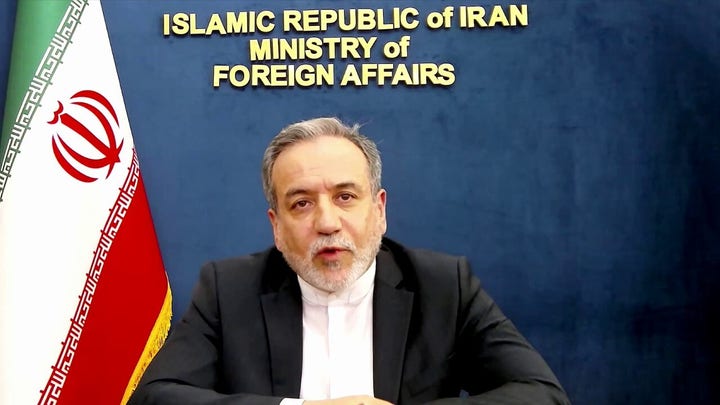Iran on Monday confirmed it will not give up its nuclear enrichment program in an exclusive interview with Fox News’ Bret Baier and Iranian Foreign Minister Abbas Araghchi, set to air at 6 pm on Monday’s ‘Special Report.’
Araghchi confirmed that the U.S.’s top ambition in preventing Tehran from further developing a nuclear weapon by blocking all enrichment capabilities is unlikely to come to fruition, despite threats of intense international sanctions.
‘We cannot give up enrichment because it is an achievement of our own scientists. And now, more than that, it is a question of national pride,’ Araghchi said. ‘Our enrichment is so dear to us,’ he told Bret Baier, anchor and executive editor of Special Report, in a clip released before the full interview airs.
The foreign minister confirmed that the extent of the damage to its nuclear facilities caused by the U.S. strikes last month was ‘serious,’ but he would not comment on whether any enriched uranium survived the strikes.
‘Our facilities have been damaged – seriously damaged,’ Araghchi said. ‘The extent of which is now under evaluation by our atomic energy organization.
‘But as far as I know, they are seriously damaged,’ he added, noting that the damage has also currently ceased all enrichment capabilities for the time being.
Iran has maintained that it was not seeking a nuclear weapon, but in the lead up to the Israeli and U.S. strikes, security experts were sounding the alarm that Tehran was likely capable of producing at least one nuclear weapon in a matter of days, and several warheads in a matter of weeks.
While nuclear enrichment is a process needed for nations that also rely on nuclear power, Iran’s nuclear energy usage amounts to less than one percent of the nation’s energy consumption.
The U.S. has suggested that given the low amounts of nuclear energy which Iran relies on, it should join a consortium that could potentially involve nations like the UAE and Saudi Arabia for its enriched uranium needs for civil nuclear power use.
But Iran has repeatedly rejected this proposal, with Iranian Supreme Leader Ayatollah Ali Khamenei also referring to Tehran’s capabilities as a source of national pride just last month.
‘The number of countries in the world that have achieved a complete nuclear fuel cycle is perhaps fewer than the number of fingers on a person’s two hands,’ Khamenei said in early June. ‘We’re capable of producing nuclear fuel starting from the mine and all the way to the power plant.’
But Iran also faces immense international sanctions and even greater arms restrictions should it fail to reach a nuclear agreement by the end of August – though it is unclear if that agreement must include the U.S. or just European nations including France, Germany and the U.K., also referred to as the E3.
Iranian officials will not only be meeting with its top allies and chief adversaries to the West, Russia and China, on Tuesday, but Tehran is also set to hold talks on Friday with officials from the E3.
Washington and Tehran have yet to resume talks following the U.S. strikes last month.

